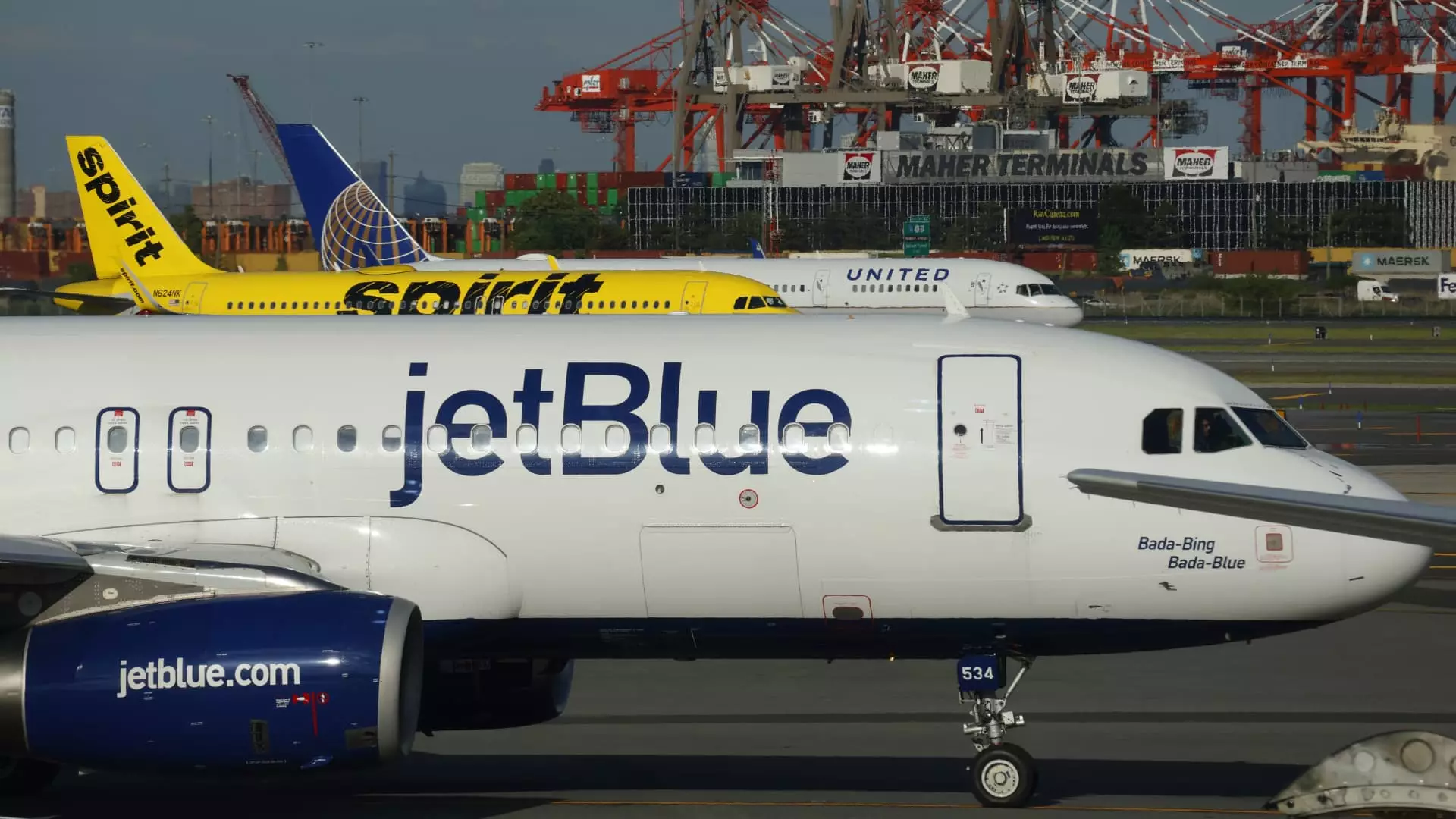The airline industry, which was once characterized by a frenzy of new jet orders, is now facing a stark reality as cash-strapped, low-cost, and deep discounter airlines are putting the brakes on spending billions of dollars on new aircraft. These airlines are prioritizing saving money as they strive to return to profitability and confront the challenges posed by engine repairs. The over-saturation of flights in the U.S. market this year has led to a decline in ticket prices, particularly in the domestic segment where low-cost carriers dominate. While passenger volume has increased, airlines are grappling with dwindling revenue and escalating costs.
Frontier Airlines, JetBlue Airways, and Spirit Airlines, which last reported profits in 2019, are now reevaluating their growth plans and deferring the delivery of new aircraft. Frontier Airlines, for instance, announced the postponement of 54 Airbus aircraft deliveries until at least 2029. The airlines cite years of delays in aircraft deliveries as a key factor in their decision to slow down the pace of fleet expansion. For instance, JetBlue Airways is estimating savings of around $3 billion by delaying 44 Airbus A321 planes through 2029. This move also includes extending current aircraft leases to mitigate costs.
The Impact of Grounded Aircraft
Complicating matters further, airlines like JetBlue are contending with grounded jets stemming from a Pratt & Whitney engine recall. Deferring aircraft deliveries at this time, when the carriers are already facing a shortage of planes due to the recall, presents a double-edged sword situation. CEOs of major airlines have expressed concerns about acquiring new planes that may end up grounded while exacerbating financial problems. This has prompted airlines to reconsider their fleet expansion strategies and shift their focus to cost-saving measures.
Financial Challenges and Deferred Orders
Spirit Airlines, which recently reported a significant revenue drop and a substantial loss, has resorted to deferring all Airbus planes ordered until 2030. This decision follows a series of setbacks, including the failed acquisition attempt by JetBlue and the ongoing engine recall impact. The airline’s move to defer aircraft orders highlights the severity of financial challenges facing the low-cost carrier segment. Despite these setbacks, companies like AerCap have stepped in to offer solutions such as assuming aircraft orders, providing a lifeline for struggling airlines.
Industry-Wide Scarcity Mindset
While budget carriers are cutting back on new aircraft orders, the broader airline industry is grappling with scarcity challenges, particularly in obtaining new fuel-efficient planes. Lease rates for popular Airbus and Boeing models have reached record highs, reflecting a persistent demand for modern aircraft. The aircraft suppliers, Airbus and Boeing, are facing production constraints due to post-Covid challenges, including labor shortages and supply chain disruptions. As airlines reassess their growth plans, the industry is witnessing a shift towards more cautious investment strategies.
Despite the current challenges facing the airline industry, major suppliers like Airbus and Boeing remain optimistic about long-term demand for their aircraft. Airbus, with over 7,000 unfilled orders for the A320 family, and Boeing, with nearly 4,200 orders for the 737 Max, are positioned to capitalize on future market opportunities. However, airlines are under pressure to balance their fleet expansion plans with financial constraints and operational realities. Executives are emphasizing the need to mitigate costs and address challenges posed by delayed aircraft deliveries to chart a sustainable path forward.
The airline industry is experiencing a significant shift in investment priorities, with airlines deferring new aircraft orders to navigate financial hurdles and operational challenges. As the industry adapts to changing market conditions and grapples with supply chain disruptions, new strategies are emerging to ensure long-term sustainability and profitability. Airlines are reassessing their growth plans, exploring cost-saving options, and seeking innovative solutions to weather the storm and emerge stronger in a post-pandemic world.

